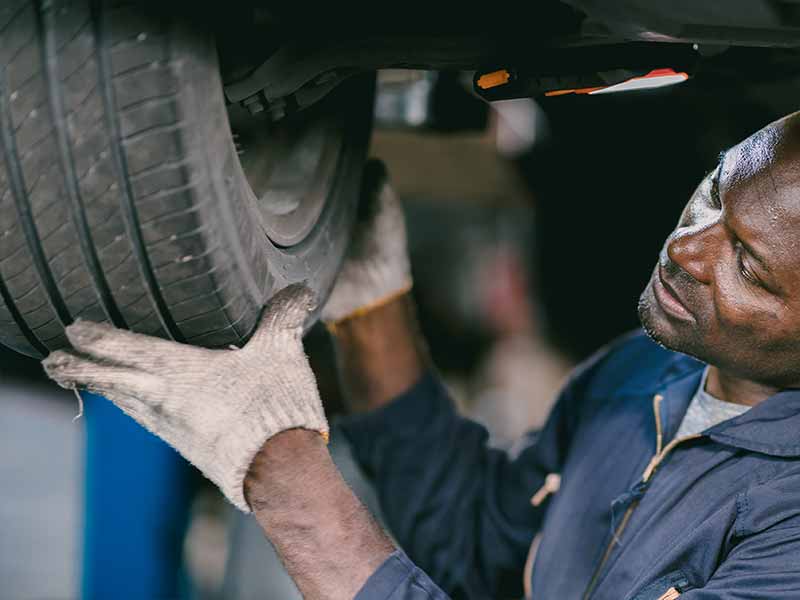You may need to drive your car or truck with poor alignment for many reasons.
Maybe you just lowered your car, lifted your truck, hit a nasty pothole, or just bought new tires. Or perhaps you need to make a trip or wait till payday before getting a wheel alignment.
How soon do you really need to get an alignment performed?
How Fast Will Tires Wear With Bad Alignment?
Tires can quickly wear unevenly with a bad alignment. You should plan to get an alignment performed within 6 months or 6,000 miles at the longest to help minimize premature tire wear.
It’s not what I’d call extremely urgent. Still, it is important to have your alignment checked as soon as possible and then regularly by a professional to ensure that your tires are wearing evenly and to prevent any unnecessary wear and tear.
Let’s take a closer look.
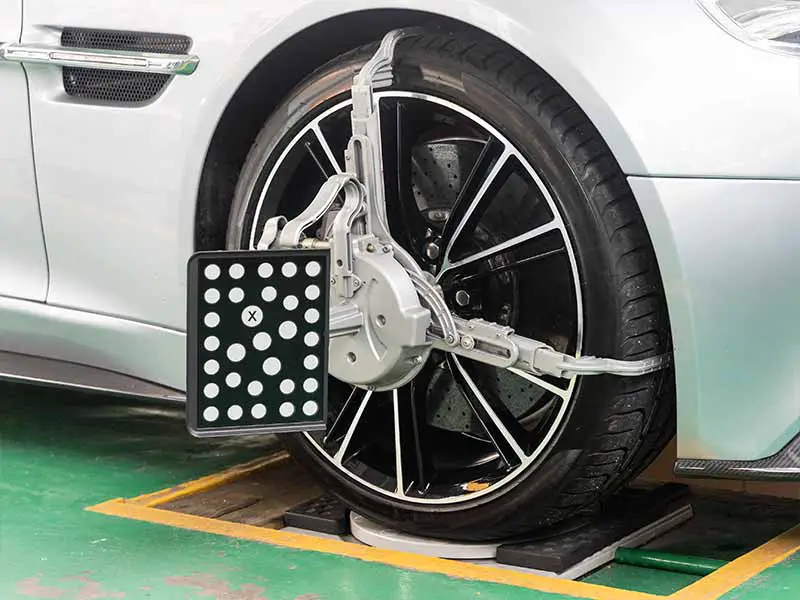
How Soon Should I Get An Alignment After New Tires?
When you replace your tires, getting an alignment is important, but the timing can depend on a few factors. For example, if you’re only replacing two tires, you’ll want to get an alignment done right away to ensure that all four tires are wearing evenly. On the other hand, if you’re replacing all four tires, you may be able to wait a little bit longer before getting an alignment.
In general, though, I recommend getting an alignment done within the first 6 months or 6,000 miles of putting new tires on your car. This will help ensure your tires wear evenly and last as long as possible. Plus, it’ll make your car easier to handle and safer to drive.
Now, if you notice any issues with your car’s handling or tire wear before the 6-month/6,000-mile mark, don’t wait to get an alignment done. Addressing any issues early on can help prevent more serious problems down the road.
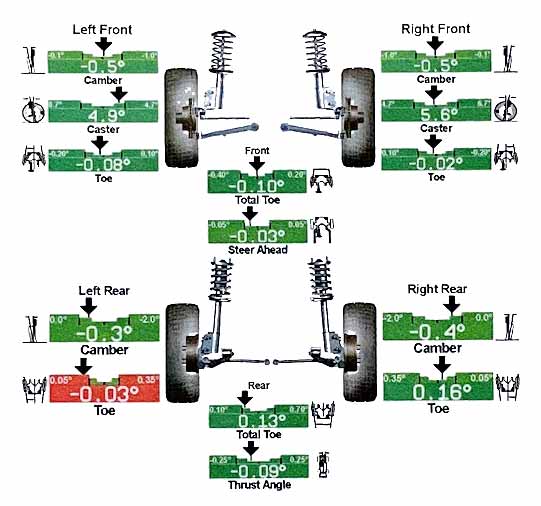
Driving Long Distance With Bad Alignment
When your car’s wheels are out of alignment, it means that they are not pointing in the correct direction. This can cause your car or truck to pull to one side or the other, which can make it harder to keep it in your lane. And if you’re driving for long periods of time, this can be incredibly tiring and put you at risk of getting into an accident.
Another issue with driving long distances with a bad alignment is that it can cause your tires to wear unevenly, with some areas of the tire experiencing more wear than others. This can lead to bald spots or even punctures, which can be dangerous while driving. Plus, uneven tire wear can also cause your car to handle poorly, which can make it harder to control and increase your risk of getting into an accident.
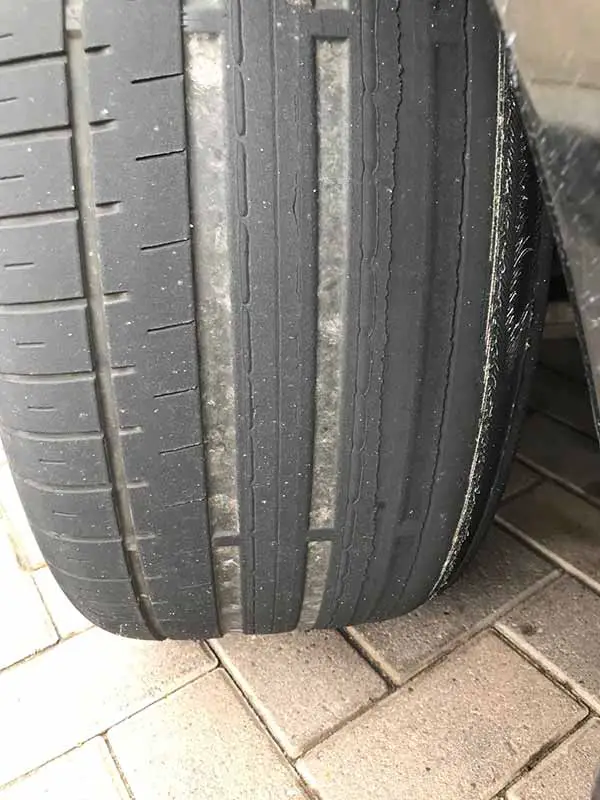
Dangers Of Driving With Bad Alignment
You’re already aware that alignment problems can cause your tires to wear unevenly. This can lead to bald spots or even punctures, which can be dangerous while driving. Plus, uneven tire wear can also cause your car to handle poorly, which can make it harder to control and increase your risk of getting into an accident.
In addition to uneven tire wear, when your car’s wheels are out of alignment, it can cause your car or truck to pull to one side or the other, which can be dangerous while driving. It can also make your vehicle more difficult to control, especially when pushed to the limit in an emergency situation.
But the dangers of bad alignment don’t stop there. Driving with bad alignment can also cause your suspension and steering components to wear out faster, which can be expensive to repair. And if left unchecked, alignment problems can even affect your car’s fuel efficiency, costing you more money at the pump.
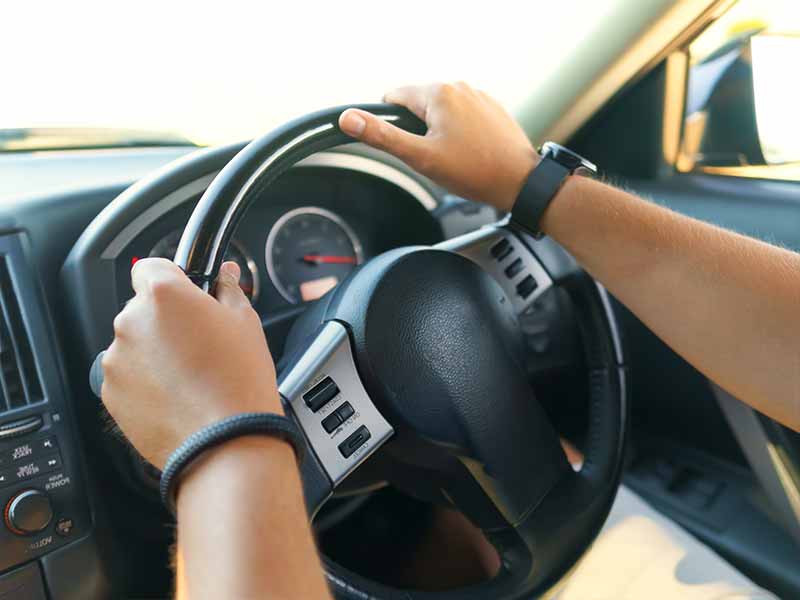
Tire Wear From Bad Alignment
When your car’s wheels are out of alignment, it means that they’re not pointing in the same direction. This causes your tires to scrub against the road at an angle, which can cause them to wear down faster on one side than the other. Over time, this can lead to bald spots or even punctures, which can be dangerous while driving.
Wear Patterns
Understanding wear patterns can help you identify the specific alignment issue that is the cause and get it fixed before more damage to your tires can occur.
Toe Tire Wear
Toe tire wear happens when the front of your tire points inward or outward instead of straight ahead. This can cause the tires to wear down on the inside or outside edges, depending on which way they’re pointed.
This type of wear can be especially bad because it often goes unnoticed until it’s too late.
Camber Tire Wear
Camber tire wear happens when the top of your tire tilts inward or outward instead of sitting straight up and down. This can cause the tire to wear down on one side more than the other, leading to many problems.
Caster Tire Wear
Caster tire wear happens when the angle of your steering axis tilts forward or backward, causing the tire to wear down on one side more than the other. This can lead to all sorts of problems, including poor handling, reduced fuel efficiency, and even blowouts if left unchecked.
How To Know If You Need An Alignment
One of the most obvious signs that you need an alignment is if your car pulls to one side while driving on a straight road. This could be a sign that your wheels are misaligned and need to be adjusted. Another sign is if your steering wheel is off-center while driving straight. If you find yourself having to hold your steering wheel at an angle to keep the car moving straight, that’s a sign you need an alignment.
Another sign that you need an alignment is if you notice uneven wear on your tires. Check your tires for signs of wear on one side or the other, as well as in the center or on the edges. If you notice any of these patterns, it could be a sign that your wheels are out of alignment and need to be adjusted.
If you’ve recently hit a pothole or curb or been involved in a minor accident, getting an alignment check is also a good idea. Even minor incidents can knock your wheels out of alignment and cause wear and tear on your tires over time.
Resources
Below are some links you may find helpful when learning about tires
- Do I need an alignment with new tires? – Firestone
- Do you need an alignment after replacing shocks and struts? – CarParts.com
Final Thoughts
A bad tire alignment will cause your tires to wear out faster than they should. The specific wear patterns will depend on the type of alignment problem you’re experiencing. Toe wear, camber wear, and caster wear are all possible outcomes of alignment problems. Regardless of the kind of wear pattern, misaligned wheels can significantly reduce the lifespan of your tires and compromise your safety on the road.
If you’re experiencing any of the symptoms of bad wheel alignment, such as pulling to one side or uneven tire wear, it’s important to get your alignment checked as soon as possible. A professional mechanic can identify any issues and get your wheels back in alignment, which will help you get the most out of your tires and keep you safe on the road.
Remember, regular maintenance is key to keeping your tires in good condition and ensuring a smooth, safe ride. Don’t hesitate to have your alignment checked if you suspect a problem. Your tires (and wallet) will thank you in the long run!
Good luck and happy motoring.
